The OVC system is flexible in its use. To create separation, you can use any of the following;
- Garrison Composi-Tight® original ring with wooden wedges
- Wooden wedges alone
- Stretch Wedges
Below we will show you a clinical tip on how to use wooden wedges in combination with a separating ring for optimum separating force.
Case study by Dr Adam Doudney.
1. Before treatment.
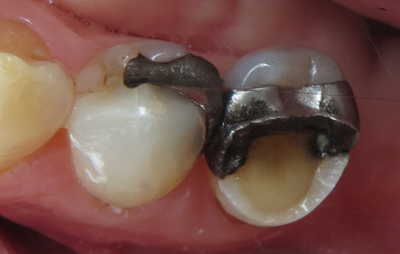

2. Place the McDonald Matrix Band. If you have any trouble placing the band, you may wish to use the wooden wedge placement technique for optimal stability – click here to view. If you have used the wooden wedge placement technique, keep the wooden wedge in place. Otherwise, insert your wedge now.
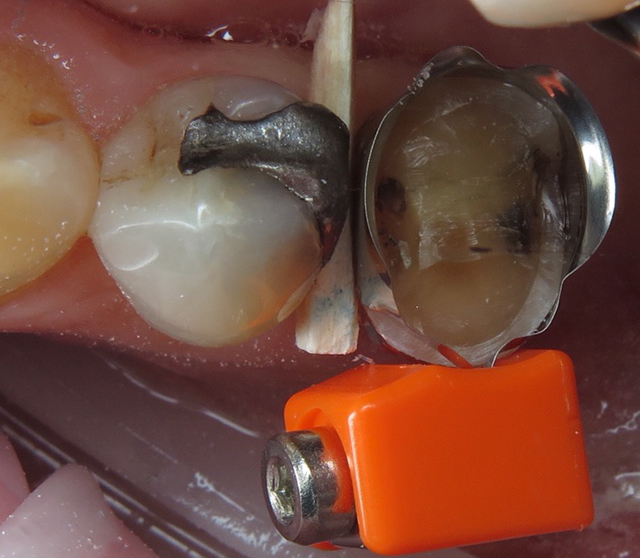

3. Carefully place the Garrison Composi-Tight® Original ring on the side you wish to build up the contact. This separating ring is ideal as it can be used on teeth with little remaining tooth structure, and the ledges on the bottom of the tines ensures that the ring stays in place as they grip beneath the wooden wedge. The ring is used to create additional separating force which will aid in ensuring tight contacts.
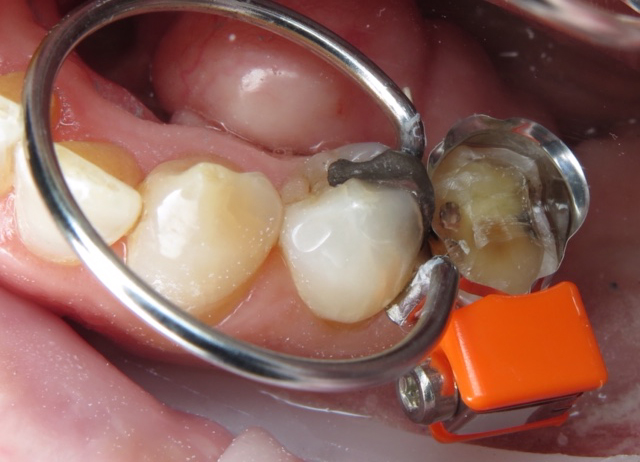

4. Build up the contact on the side you have the ring. Make sure to burnish well, and to hold your ball burnisher (or flat plastic) firmly against the band while curing in order to ensure a tight contact. Then, switch the ring to the other side and build up the other contact. In this clinical case there was no distal opposing tooth so contacts only needed to be built on the mesial side.
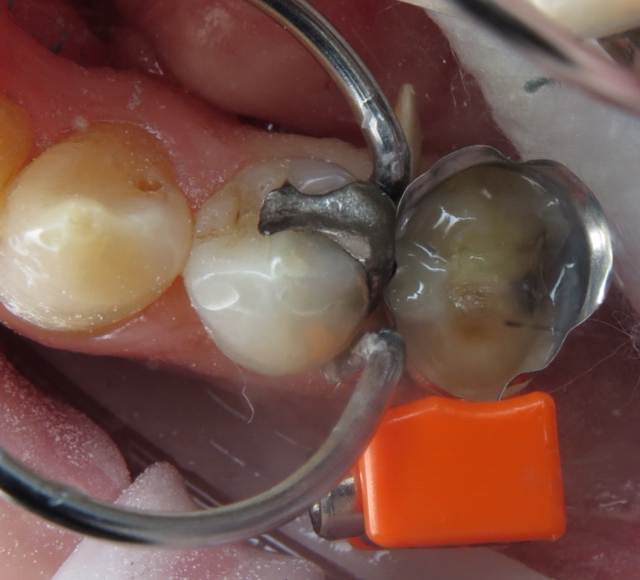

5. Image of completed OVC restoration with tight contacts.
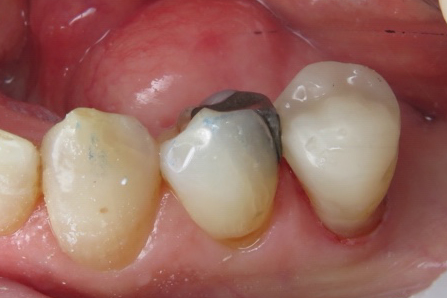

What do you think of Dr Adam Doudney’s clinical tip? Have you tried this in your own practice? Leave your comments below.
